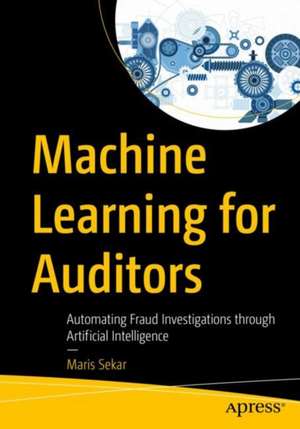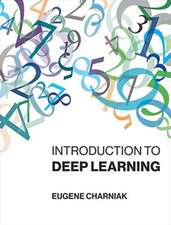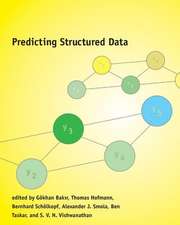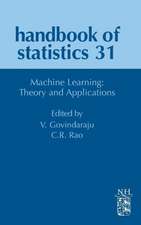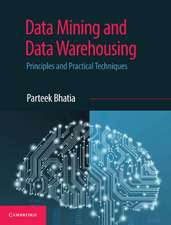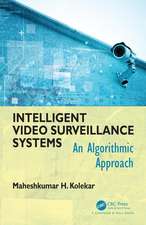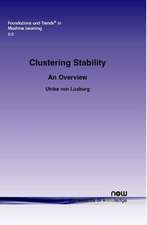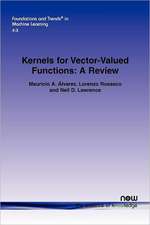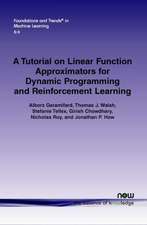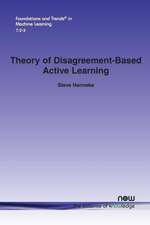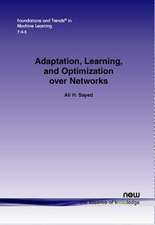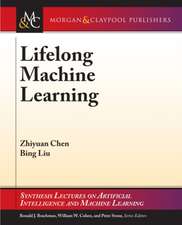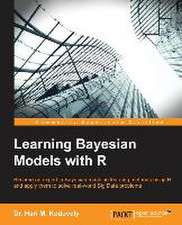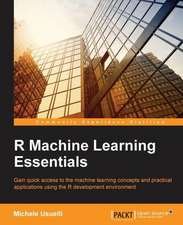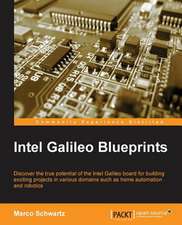Machine Learning for Auditors: Automating Fraud Investigations Through Artificial Intelligence
Autor Maris Sekaren Limba Engleză Paperback – 27 feb 2022
Machine Learning for Auditors provides an emphasis on domain knowledge over complex data science know how that enables you to think like a data scientist. The book helps you achieve the objectives of safeguarding the confidentiality, integrity, and availability of your organizational assets. Data science does not need to be an intimidating concept for audit managers and directors. With the knowledge in this book, you can leverage simple concepts that are beyond mere buzz words to practice innovation in your team. You can build your credibility and trust with your internal and external clients by understanding the data that drives your organization.
What You Will Learn
- Understand the role of auditors as trusted advisors
- Perform exploratory data analysis to gain a deeper understanding of your organization
- Build machine learning predictive models that detect fraudulent vendor payments and expenses
- Integrate data analytics with existing and new technologies
- Leverage storytelling to communicate and validate your findings effectively
- Apply practical implementation use cases within your organization
Who This Book Is For
AI Auditing is for internal auditors who are looking to use data analytics and data science to better understand their organizational data. It is for auditors interested in implementing predictive and prescriptive analytics in support of better decision making and risk-based testing of your organizational processes.
Preț: 281.09 lei
Preț vechi: 351.36 lei
-20% Nou
Puncte Express: 422
Preț estimativ în valută:
53.79€ • 56.16$ • 44.52£
53.79€ • 56.16$ • 44.52£
Carte disponibilă
Livrare economică 15-29 martie
Preluare comenzi: 021 569.72.76
Specificații
ISBN-13: 9781484280508
ISBN-10: 1484280504
Pagini: 242
Ilustrații: XVII, 242 p. 95 illus.
Dimensiuni: 178 x 254 mm
Greutate: 0.46 kg
Ediția:1st ed.
Editura: Apress
Colecția Apress
Locul publicării:Berkeley, CA, United States
ISBN-10: 1484280504
Pagini: 242
Ilustrații: XVII, 242 p. 95 illus.
Dimensiuni: 178 x 254 mm
Greutate: 0.46 kg
Ediția:1st ed.
Editura: Apress
Colecția Apress
Locul publicării:Berkeley, CA, United States
Cuprins
Part I. Trusted Advisors.- 1. Three Lines of Defense.- 2. Common Audit Challenges.- 3. Existing Solutions.- 4. Data Analytics.- 5. Analytics Structure & Environment.- Part II. Understanding Artificial Intelligence.- 6. Introduction to AI, Data Science, and Machine Learning.- 7. Myths and Misconceptions.- 8. Trust, but Verify.- 9. Machine Learning Fundamentals.- 10. Data Lakes.- 11. Leveraging the Cloud.- 12. SCADA and Operational Technology.- Part III. Storytelling.- 13. What is Storytelling?.- 14. Why Storytelling?.- 15. When to Use Storytelling.- 16. Types of Visualizations.- 17. Effective Stories.- 18. Storytelling Tools.- 19. Storytelling in Auditing.- Part IV. Implementation Recipes.- 20. How to Use the Recipes.- 21. Fraud and Anomaly Detection.- 22. Access Management.- 23. Project Management.- 24. Data Exploration.- 25. Vendor Duplicate Payments.- 26. CAATs 2.0.- 27. Log Analysis.- 28. Concluding Remarks.
Notă biografică
Maris Sekar is a professional computer engineer, Certified Information Systems Auditor (ISACA), and Senior Data Scientist (Data Science Council of America). He has a passion for using storytelling to communicate on high-risk items within an organization to enable better decision making and drive operational efficiencies. He has cross-functional work experience in various domains such as risk management, data analysis and strategy, and has functioned as a subject matter expert in organizations such as PricewaterhouseCoopers LLP, Shell Canada Ltd., and TC Energy. Maris’ love for data has motivated him to win awards, write LinkedIn articles, and publish two papers with IEEE on applied machine learning and data science.
Textul de pe ultima copertă
Use artificial intelligence (AI) techniques to build tools for auditing your organization. This is a practical book with implementation recipes that demystify AI, ML, and data science and their roles as applied to auditing. You will learn about data analysis techniques that will help you gain insights into your data and become a better data storyteller. The guidance in this book around applying artificial intelligence in support of audit investigations helps you gain credibility and trust with your internal and external clients. A systematic process to verify your findings is also discussed to ensure the accuracy of your findings.
Machine Learning for Auditors provides an emphasis on domain knowledge over complex data science know how that enables you to think like a data scientist. The book helps you achieve the objectives of safeguarding the confidentiality, integrity, and availability of your organizational assets. Data science does not need to be an intimidatingconcept for audit managers and directors. With the knowledge in this book, you can leverage simple concepts that are beyond mere buzz words to practice innovation in your team. You can build your credibility and trust with your internal and external clients by understanding the data that drives your organization.
Machine Learning for Auditors provides an emphasis on domain knowledge over complex data science know how that enables you to think like a data scientist. The book helps you achieve the objectives of safeguarding the confidentiality, integrity, and availability of your organizational assets. Data science does not need to be an intimidatingconcept for audit managers and directors. With the knowledge in this book, you can leverage simple concepts that are beyond mere buzz words to practice innovation in your team. You can build your credibility and trust with your internal and external clients by understanding the data that drives your organization.
What You Will Learn
- Understand the role of auditors as trusted advisors
- Perform exploratory data analysis to gain a deeper understanding of your organization
- Build machine learning predictive models that detect fraudulent vendor payments and expenses
- Integrate data analytics with existing and new technologies
- Leverage storytelling to communicate and validate your findings effectively
- Apply practical implementation use cases within your organization
Caracteristici
Enables a deeper understanding of your organizational processes and data Provides valuable skills around storytelling and data analysis techniques Improves data literacy in the audit team and the organization
